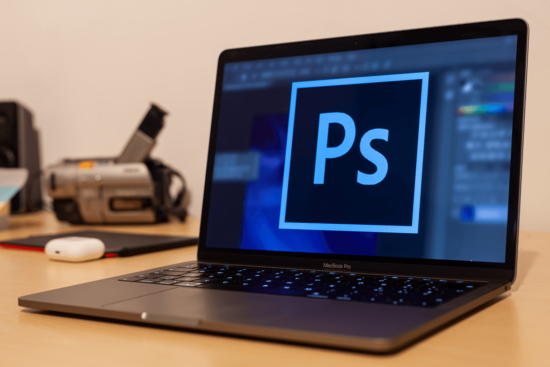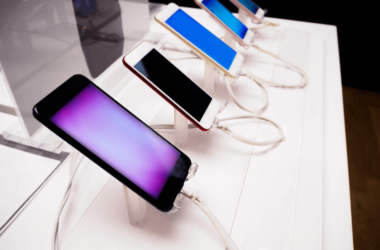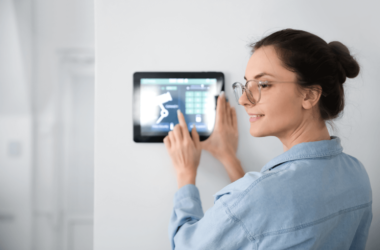Intro
In today’s fast-paced world, the demand for devices that can seamlessly transition between work and play has never been higher. Laptop models for productivity and gaming are particularly sought after, as they promise the versatility of handling intense workloads and offering immersive gaming experiences. This blog post pits two of the most popular contenders against each other: the MacBook Pro and the Dell XPS. Both laptops have their loyal fan bases, but how do they really stack up when their features are directly compared?
Introduction to the Contenders: MacBook Pro vs. Dell XPS
The MacBook Pro and Dell XPS stand as titans in the realm of high-performance laptops, each with its own set of strengths tailored to meet the demands of today’s tech-savvy users. The MacBook Pro is often the go-to choice for creatives and professionals who value the polish and reliability of Apple’s hardware, coupled with the smooth operation of its software. It’s renowned for its premium build and high-end performance, making it a staple for those entrenched in the Apple ecosystem. On the flip side, the Dell XPS has made a name for itself as a versatile powerhouse, capable of handling demanding productivity tasks and gaming alike. It’s praised for its sleek design, superior display technology, and the ability to deliver top-notch performance in a Windows-based environment. Each laptop offers a unique proposition: the MacBook Pro with its unmatched integration within the Apple universe and optimized software performance, and the Dell XPS with its flexibility and raw power, appealing to a broad spectrum of users from professionals to gamers. As we dive deeper into the specifics of each model, it’s clear that they cater to different user needs and preferences, setting the stage for a detailed comparison of their capabilities, design, and overall value.
Performance Under Pressure: Productivity and Gaming Capabilities
When pushing the limits of what laptops can do, the MacBook Pro and the Dell XPS each offer stellar performances in their respective domains. The MacBook Pro, powered by Apple’s groundbreaking M1 or its successors, M1 Pro and M1 Max chips, provides an unparalleled efficiency and power that is hard to beat. This makes it a powerhouse for creative tasks such as video editing, music production, and intensive software development workflows. Its performance is further boosted by an architecture that optimizes macOS-specific applications, offering users a smooth and responsive experience.
Conversely, the Dell XPS, armed with the latest generation of Intel Core processors and the option for NVIDIA discrete graphics, positions itself as a versatile workhorse. It excels not only in complex productivity tasks but also in the gaming arena. Its ability to effortlessly juggle multiple demanding applications at once, along with superior gaming capabilities, sets it apart for users who require a machine that can adapt to various intensive uses. The inclusion of high-end graphics options means it can run most modern games with ease, providing a satisfying gaming experience without the need for an additional gaming console or desktop.
The divergence in performance capabilities between these two models illustrates the importance of considering user needs and software preferences. While the MacBook Pro shines in an environment optimized for macOS, offering efficiency and a smooth user experience for creative tasks, the Dell XPS brings flexibility and raw power to the table, appealing to a wide range of users who prioritize versatility and gaming performance in a Windows ecosystem.
Screen Quality and Display Performance: A Visual Comparison
When it comes to the visual aspect of laptops, both the MacBook Pro and the Dell XPS do not disappoint, each boasting displays that are a testament to modern engineering and design aesthetics. The MacBook Pro takes pride in its Retina Display, which is lauded for its ability to produce vibrant colors, deep blacks, and an overall crispness that brings images and videos to life. This level of detail and color accuracy has made it a beloved choice among professionals in photography and video editing, who rely on precise color representation for their work.
On the other hand, the Dell XPS impresses with its InfinityEdge display, a design choice that significantly reduces the bezel size, thus offering users more screen space without increasing the laptop’s overall size. This feature, combined with the option for a 4K resolution screen, ensures that every pixel delivers peak performance, rendering visuals in stunning detail and clarity. Such a display is not only ideal for content consumption but also enhances the experience in gaming and creative projects, where the sharpness of the image can be critical.
Between the high color fidelity of the MacBook Pro and the immersive screen experience offered by the Dell XPS, users are presented with two top-tier options that cater to high-end visual requirements. Whether it’s the precision of a professional-grade color workflow or the expansive view for multimedia enjoyment, these laptops stand out for their commitment to delivering exceptional display performance.
Portability and Battery Life: On-the-Go Comparisons
In the realm of modern laptops, the blend of portability and enduring battery life is crucial for users who are constantly on the move. The MacBook Pro and the Dell XPS are engineered with this very mindset, aiming to offer not just top-tier performance but also the freedom to work from anywhere without constant concern over the nearest power outlet.
The MacBook Pro stands as a beacon of efficiency, particularly with its latest iterations featuring the M1 chip, which significantly enhances battery longevity. Users can expect up to 20 hours of productivity or entertainment, a feature that is particularly attractive to those who find themselves away from power sources for extended periods. This impressive stamina does not come at the cost of performance or portability, as the MacBook Pro maintains a slim profile and a relatively light weight, making it an ideal travel companion.
Conversely, the Dell XPS showcases its prowess in providing a reliable battery life that supports a day’s worth of varied tasks, from intensive work sessions to casual browsing. While it may not reach the lofty heights of the MacBook Pro’s battery milestones, it still stands as a formidable option for those valuing longevity. Coupled with its sleek design and lightweight structure, the Dell XPS ensures that users can enjoy a blend of productivity and leisure without being tethered to a stationary power source.
In comparing these two giants, it becomes evident that both prioritize the mobility of their users, albeit with slight differences in battery life and design philosophy. Each caters to the demand for laptops that are not just powerful, but also capable of adapting to the fast-paced, mobile lifestyles of today’s workforce and entertainment seekers.
Ecosystem and Connectivity: The Best of Both Worlds?
Navigating the digital ecosystem and ensuring smooth connectivity between devices is a priority for many users when selecting a laptop. The MacBook Pro caters elegantly to those already immersed in the Apple ecosystem. Its ability to synchronize effortlessly with iPhones, iPads, and other Apple devices enhances productivity and provides a unified user experience. This seamless integration is a hallmark of Apple’s design philosophy, facilitating a cohesive workflow across devices without the need for third-party software.
On the other side, the Dell XPS shines in its compatibility with a broader ecosystem, owing to the widespread adoption of Windows. This open nature ensures that it pairs well with an extensive array of devices and peripherals, from gaming controllers to professional-grade cameras, without bias. The Dell XPS often comes equipped with a diverse set of ports, offering users more flexibility in connectivity options than the MacBook Pro, which has streamlined its port selection to primarily USB-C/Thunderbolt 3. This aspect of the Dell XPS appeals to users who value the ability to connect to a wide variety of devices and external hardware without relying heavily on adapters or docking stations.
Both laptops exhibit strengths in different aspects of ecosystem and connectivity. The MacBook Pro excels in providing a smooth, interconnected experience for users deeply invested in Apple’s ecosystem, enhancing the appeal of its hardware and software synergy. Conversely, the Dell XPS appeals to those who prioritize versatility and the ability to interact with a wider range of devices and operating systems, making it a robust choice for users who appreciate flexibility and openness in their digital environment.
Pricing and Value for Money: A Cost-Effective Analysis
When it comes to evaluating laptops based on their cost-effectiveness, the MacBook Pro and Dell XPS cater to different segments of the market. The MacBook Pro, renowned for its sleek design, superior build quality, and integration into the Apple ecosystem, carries a premium price tag that reflects its high-end status. Its pricing starts at a considerable amount and can increase significantly with upgraded specifications. This investment, however, is justified for users who depend on the unique advantages offered by the Apple ecosystem, including unmatched software optimization and seamless device connectivity, which can enhance productivity and creative workflows.
On the other side of the spectrum, the Dell XPS presents itself as a more versatile option in terms of pricing. While it is by no means a budget laptop, the Dell XPS series offers configurations that can provide a better price-to-performance ratio, especially for those prioritizing raw computing power, superior gaming experience, and compatibility with a wider range of software and hardware. The flexibility in its configuration means users can tailor the device to their specific needs, possibly achieving a balance between performance and cost that is hard to find in the MacBook Pro range.
For prospective buyers, the decision between these two may hinge on assessing the long-term value each can bring to their daily lives. Those heavily invested in gaming or in need of a laptop that fits within a broader tech ecosystem may find the Dell XPS to offer more tangible benefits per dollar spent. Conversely, individuals who value streamlined workflows, longevity, and the premium touch of Apple products might see the MacBook Pro’s higher price as a worthwhile investment. The contrast in pricing strategies between these models underscores the importance of considering both immediate financial outlay and anticipated long-term benefits when choosing between these top-tier laptops.
Final Thoughts: Which Laptop Reigns Supreme?
In concluding our exploration of the MacBook Pro and Dell XPS, it’s clear that the decision is not about finding a universally superior model but rather identifying which laptop aligns best with individual needs. The MacBook Pro is a testament to Apple’s commitment to quality, offering a cohesive user experience, particularly for those already within its ecosystem. Its stellar performance, especially in creative endeavors, and exceptional battery life make it a powerhouse for professionals seeking reliability and efficiency.
Conversely, the Dell XPS stands as a beacon of versatility, marrying high performance with a broader compatibility range. It’s a machine that doesn’t just keep up with demanding productivity tasks but also excels in delivering a premium gaming experience. Its adaptability makes it a strong contender for those who value a system that can cater to a diverse set of requirements, from professional use to entertainment.
The choice between these two laptops boils down to a balance of priorities—be it the seamless integration and premium feel of the MacBook Pro or the Dell XPS’s flexibility and value proposition. Both models offer compelling arguments in their favor, but the best pick is the one that most closely matches your personal or professional demands. Whether you’re swayed by the allure of Apple’s design and software harmony or the Dell XPS’s potent blend of power and adaptability, selecting the right laptop is a deeply personal decision that hinges on how you envision using it in your daily life.








